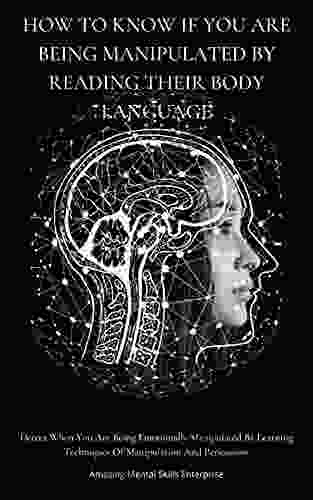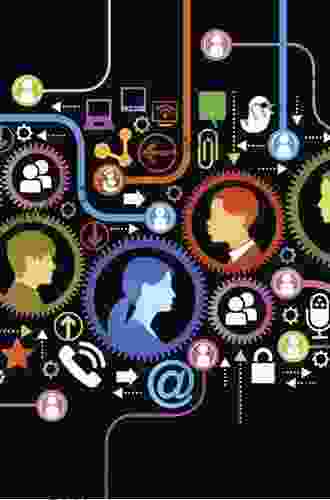Cultures and Technologies of Knowledge: The Interplay of Humans, Information, and Innovation

In the realm of human existence, the pursuit of knowledge and the development of technologies have intertwined, shaping our perceptions and interactions with the world around us. From the earliest cave paintings to the advent of the internet, cultures and technologies have coevolved, influencing our understanding of reality and the ways in which we access, create, and disseminate information.
Knowledge: The Foundation of Human Societies
Knowledge, the accumulation of facts, concepts, and experiences, lies at the heart of human societies. It enables us to comprehend our surroundings, make informed decisions, and innovate new solutions to the challenges we encounter. Cultures, as shared systems of beliefs, values, and norms, play a pivotal role in shaping the way we acquire, interpret, and utilize knowledge.
5 out of 5
| Language | : | English |
| File size | : | 3079 KB |
| Text-to-Speech | : | Enabled |
| Screen Reader | : | Supported |
| Enhanced typesetting | : | Enabled |
| Word Wise | : | Enabled |
| Print length | : | 266 pages |
Different cultures prioritize different types of knowledge and develop distinct methods for transmitting it. Oral traditions, written texts, and digital media all serve as conduits for knowledge transfer, each reflecting the unique epistemological perspectives of the societies that produce them.
Technologies: Tools for Knowledge Expansion and Access
Technologies have acted as catalysts for the advancement of knowledge throughout history. From the invention of the printing press to the development of the computer, technological innovations have expanded our capacity to produce, store, and share information.
Digital technologies, in particular, have revolutionized the dissemination of knowledge, breaking down geographical barriers and democratizing access to a vast repository of human knowledge. The internet has transformed education, research, and communication, connecting people from all corners of the globe.
The Interwoven Relationship
Cultures and technologies are not merely separate entities; they interact in a dynamic and interdependent relationship. Cultural values and beliefs influence the development and adoption of technologies, while technologies, in turn, shape cultural practices and norms.
For example, the cultural emphasis on individualism in Western societies has contributed to the rise of personal computing and social media, which empower individuals to express themselves and connect with others. Conversely, the collectivist orientation of some Eastern cultures has influenced the development of technologies that facilitate collaboration and group communication.
Case Study: The Rise of the Smartphone
The smartphone, a ubiquitous device in contemporary society, exemplifies the interconnectedness of cultures and technologies. Its development reflects the cultural values of convenience, connectivity, and information access.
Smartphones have become indispensable tools for communication, entertainment, and learning, reshaping our daily routines and social interactions. They have also raised important questions about privacy, addiction, and the impact of technology on human behavior.
Implications for Education and Research
Understanding the relationship between cultures and technologies has significant implications for education and research. Educators must be aware of the cultural contexts in which students acquire and use knowledge, and adapt their teaching methods accordingly.
Researchers need to explore the ethical, social, and cultural dimensions of technological advancements. By examining the interplay between cultures and technologies, we can develop more informed and inclusive approaches to education and innovation.
Cultures and technologies are inextricably linked, shaping the ways in which we understand, access, and create knowledge. The relationship between the two is dynamic and multifaceted, influencing our perceptions of reality and the ways in which we interact with the world around us.
By fostering a deeper understanding of the cultures and technologies of knowledge, we can empower ourselves to navigate the complexities of the information age and harness the power of technology for the betterment of society.
5 out of 5
| Language | : | English |
| File size | : | 3079 KB |
| Text-to-Speech | : | Enabled |
| Screen Reader | : | Supported |
| Enhanced typesetting | : | Enabled |
| Word Wise | : | Enabled |
| Print length | : | 266 pages |
Do you want to contribute by writing guest posts on this blog?
Please contact us and send us a resume of previous articles that you have written.
Light bulbAdvertise smarter! Our strategic ad space ensures maximum exposure. Reserve your spot today!
 Samuel Taylor ColeridgeFollow ·12.3k
Samuel Taylor ColeridgeFollow ·12.3k Bob CooperFollow ·14.3k
Bob CooperFollow ·14.3k Nikolai GogolFollow ·6.9k
Nikolai GogolFollow ·6.9k Blake KennedyFollow ·7.2k
Blake KennedyFollow ·7.2k Charles ReedFollow ·5.8k
Charles ReedFollow ·5.8k Rick NelsonFollow ·9.1k
Rick NelsonFollow ·9.1k David PetersonFollow ·14.1k
David PetersonFollow ·14.1k Pete BlairFollow ·2.6k
Pete BlairFollow ·2.6k

 Isaiah Powell
Isaiah PowellWisconsin Clinic Pilots Mobile Crisis Response System For...
MADISON, Wis. - A new mobile crisis...

 Daniel Knight
Daniel KnightUnleash Your Creativity: A Masterclass in Fabulous Nail...
Embellish Your Fingertips with Captivating...

 Clark Campbell
Clark CampbellDetect When You Are Being Emotionally Manipulated By...
Emotional manipulation is a subtle but...

 Eli Brooks
Eli BrooksNeurological Disorders Papers: Dissociative Identity...
What is Dissociative...

 Ricky Bell
Ricky BellAn Introduction to Islam for Jews: Unveiling the Tapestry...
A Bridge of Understanding: Exploring Islam for...

 Octavio Paz
Octavio PazAchieving Longevity: The Complete Step-by-Step Guide to...
**** In the ever-evolving landscape of health...
5 out of 5
| Language | : | English |
| File size | : | 3079 KB |
| Text-to-Speech | : | Enabled |
| Screen Reader | : | Supported |
| Enhanced typesetting | : | Enabled |
| Word Wise | : | Enabled |
| Print length | : | 266 pages |


















































